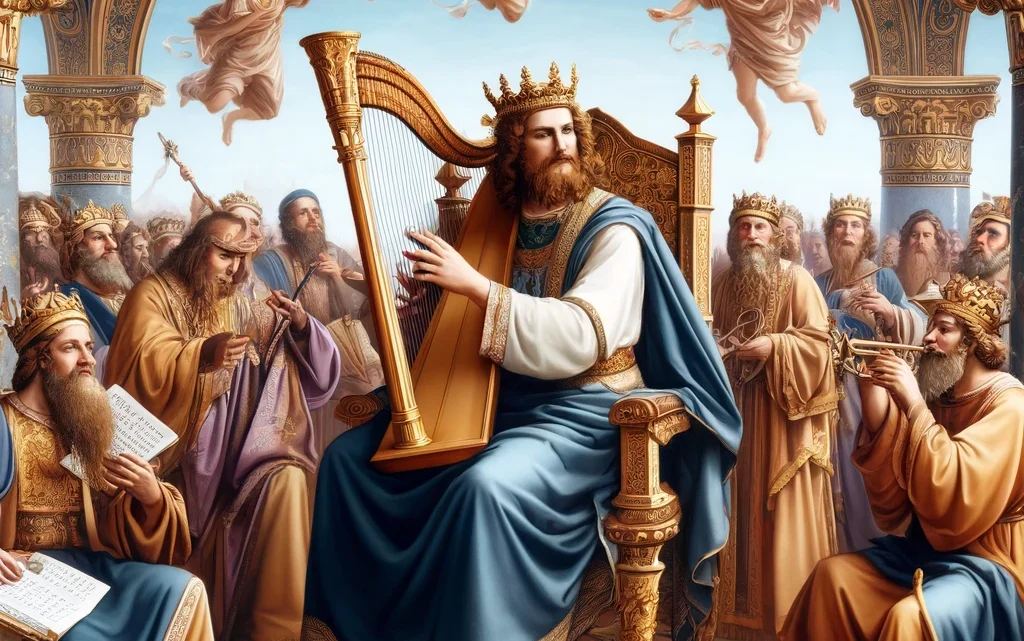The Role of Music in Hebrew Worship: From King David to Modern Times

Introduction
Music has always been a vital part of Hebrew worship, from the days of King David to contemporary practices. This post explores the historical evolution of music in Hebrew worship, highlighting key figures and the ways music enhances spiritual experiences.
The Legacy of King David
Scriptural Reference: 1 Chronicles 25:1-6
Description: King David is perhaps the most renowned figure associated with music in the Bible. He appointed Levites to be singers and musicians in the Temple, establishing a rich tradition of musical worship.
Impact: David’s psalms, many of which are still sung today, express a wide range of human emotions and spiritual truths, demonstrating the power of music to connect believers with Yehovah.
The Psalms: Ancient Hymns of Praise
Scriptural Reference: Psalms
Description: The Book of Psalms is a collection of poetic songs and prayers used in worship. These psalms cover themes of praise, lament, thanksgiving, and supplication.
Impact: The Psalms provide a model for worship, showing how music can be used to express faith and devotion in both personal and communal settings.
The Role of Music in the Temple
Scriptural Reference: 2 Chronicles 5:12-14
Description: Music played a central role in Temple worship. During significant events, such as the dedication of Solomon’s Temple, musicians and singers led the people in worship, often resulting in powerful spiritual experiences.
Impact: The use of music in the Temple underscores its importance in creating an atmosphere conducive to worship and divine encounters.
Music in the Synagogue
Historical Context:
- After the destruction of the Second Temple, the synagogue became the central place of worship for Jews.
- Music in the synagogue evolved, incorporating traditional chants and melodies that have been passed down through generations.
Impact: Synagogue music preserves the ancient traditions of Hebrew worship, connecting modern worshippers with their spiritual heritage.
Modern Hebrew Worship
Contemporary Practices:
- Today, music remains a vibrant part of Hebrew worship, both in Israel and the global Jewish community.
- Modern Hebrew worship music often blends traditional elements with contemporary styles, appealing to a broad audience.
Impact: The evolution of music in Hebrew worship reflects the dynamic nature of faith and its ability to adapt while maintaining its core principles.
The Spiritual Power of Music
Theological Perspective:
- Music has the ability to transcend the spoken word, touching the soul and spirit in profound ways.
- It facilitates a deeper connection with Yehovah, enhances communal worship, and fosters personal spiritual growth.
Impact: Understanding the role of music in Hebrew worship helps believers appreciate its power and incorporate it meaningfully into their spiritual practices.
Conclusion
From the psalms of King David to contemporary worship songs, music has always been a powerful tool for expressing faith and devotion in Hebrew worship. Its evolution over time demonstrates its enduring significance and ability to connect believers with Yehovah in a profound way.

